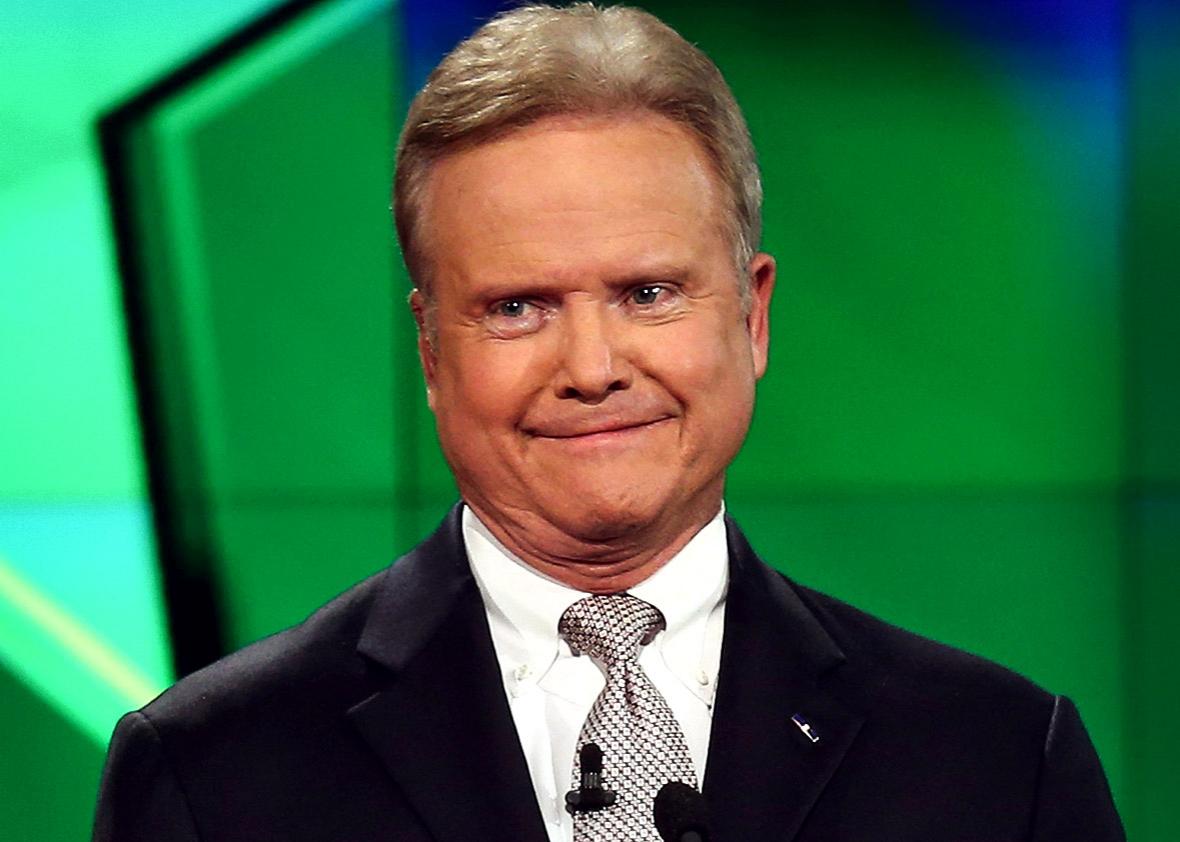Running for president is hard, grueling work that almost always ends in failure. To succeed, or even come close to success, you have to commit 100 percent. You have to campaign and cajole and speak and charm and hope that voters come to your tent, and stay for the show. And even then, even if you’re good, it’s a crapshoot.
Three months ago, in August, former Virginia Sen. Jim Webb said he wanted to be president. The United States, he said, needed “proven, experienced leadership that can be trusted to move us forward from a new president’s first days in office.” Webb was far from favored to win, but he was a compelling candidate, a throwback to an older, less diverse Democratic Party that represented the bulk of America’s white working-class, with a smattering of votes from black Americans and other groups.
As an idiosyncratic Democrat—opposed to “identity politics,” skeptical of gun control, and for the Keystone pipeline, but pro-union, pro-choice, and pro–same-sex marriage—Webb could have been an unusual force in the Democratic primary, moderating candidates on some issues but pushing them to the left on others, like foreign policy, national security, and criminal justice reform.
Instead, Webb didn’t do anything. He was hardly on the trail in Iowa, and only made one stop in New Hampshire. “The crickets here in New Hampshire are louder than the Webb campaign,” said the chairman of the state’s Democratic Party to Mother Jones. His press team was silent, and he hardly raised any money—just under $700,000 in the third quarter. If not for Lincoln Chafee, former governor of Rhode Island, Webb would have been at the bottom of the fundraising ladder.
Webb wanted to lead the United States, but he didn’t want to do the work to get to voters. And so he quit. “I am withdrawing from any consideration of being the Democratic Party’s nominee for the presidency,” said Webb at a press conference on Tuesday, at the National Press Club in Washington, D.C. Standing straight at a podium with his wife to one side and supporters on the other, Webb told a small group of reporters that he was driven away by a Democratic “hierarchy” that’s “not comfortable with many of the policies that I have laid forth.” Although, he added, “I am not comfortable with many of theirs.”
Webb sees Democrats—and Republicans, for that matter—as out of step with “the people they are supposed to serve.” “Poll after poll shows that a strong plurality of Americans is neither Republican nor Democrat,” he said. “Overwhemingly they’re independents. Americans don’t like the extremes to which both parties have moved in recent years, and I don’t blame them.”
Webb is leaving the Democratic race, but he’s not leaving the spotlight. And while he denies plans for an independent bid, he certainly sounds like someone who might take the plunge. “I am not going away. I am thinking through all of my options,” he said. “Two hundred and forty years ago, the Declaration of Independence from our status as a colony from Great Britain was announced. It’s time for a new Declaration of Independence … from the paralysis of a federal system that no longer serves the interests of the vast majority of the American people.”
He continued along these lines for the rest of the announcement. “Our political process is jammed up,” he said. “It needs an honest broker who respects all sides, who understands the complicated nature of how our federal system works, who will communicate a vision for our country’s future here at home and in our foreign policy, and who has a proven record of gettings things done.”
Hint hint.
Webb, it should be said, is overselling himself. In his only campaign, the 2006 Virginia Senate race against George Allen, Webb won 42 percent of whites, basically matching Mark Warner’s 2001 campaign for governor—especially among Webb’s stated constituency, rural and mountain whites—and only slightly outperforming Obama’s 2008 effort in the state. Webb, in short, relied on the same coalition that he says is “out of step” with the country at large. It’s a strong clue that, in a general election, Webb would have been subject to the same forces that constrain all Democrats.
Still, it’s tempting to look at Webb as a good man driven out by a bad game—a rigged game, where you have to compromise to thrive. But that’s nonsense. The second leading candidate in the Democratic primary—who takes a third of all Democratic voters in national polls—is Sen. Bernie Sanders, the “democratic socialist” from Vermont who just officially joined the Democratic Party in order to compete. Sanders isn’t a part of the party hierarchy—he’s trying to drive left. And it’s working. Why? Because unlike Webb, Sanders is actually trying.
Yes, Webb is out of step with the present-day Democratic Party, left behind in the wake of the Obama era. Ten years ago, he was touted as the kind of Democrat who would save the party—the moderate, pro-military figure who could compete with Republicans for working-class whites.
But Webb’s failure as a candidate has nothing to do with his distance from the Democratic mainstream. It has everything to do with his refusal to campaign for votes and support. Jim Webb wanted to be president. He just didn’t want to have to work for it.
